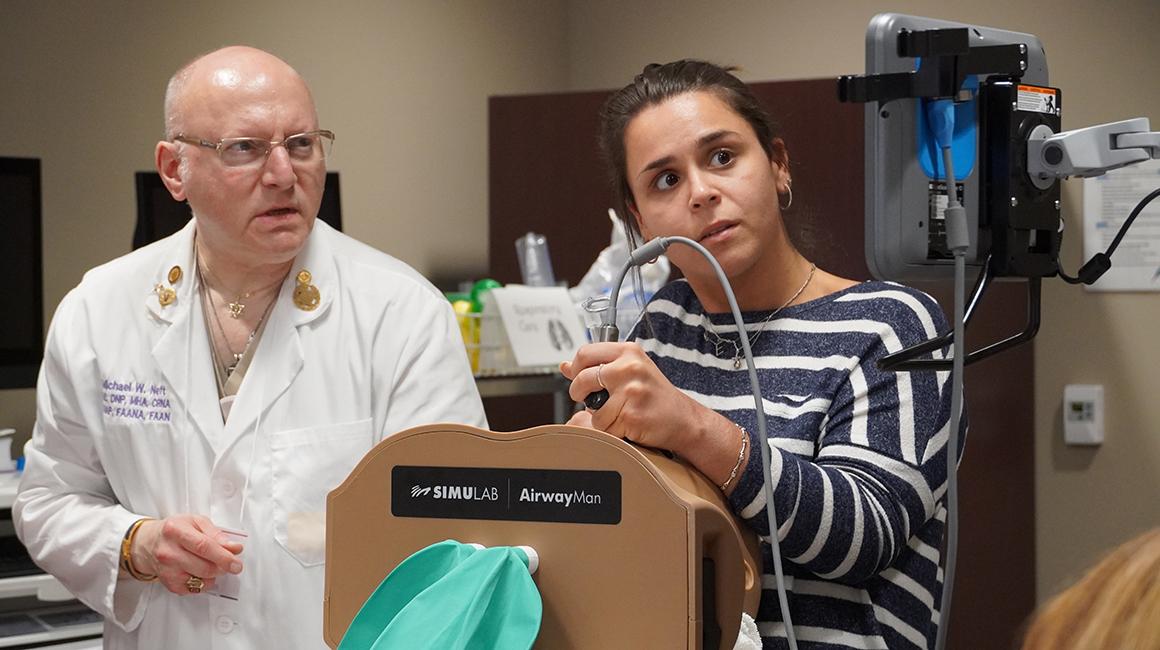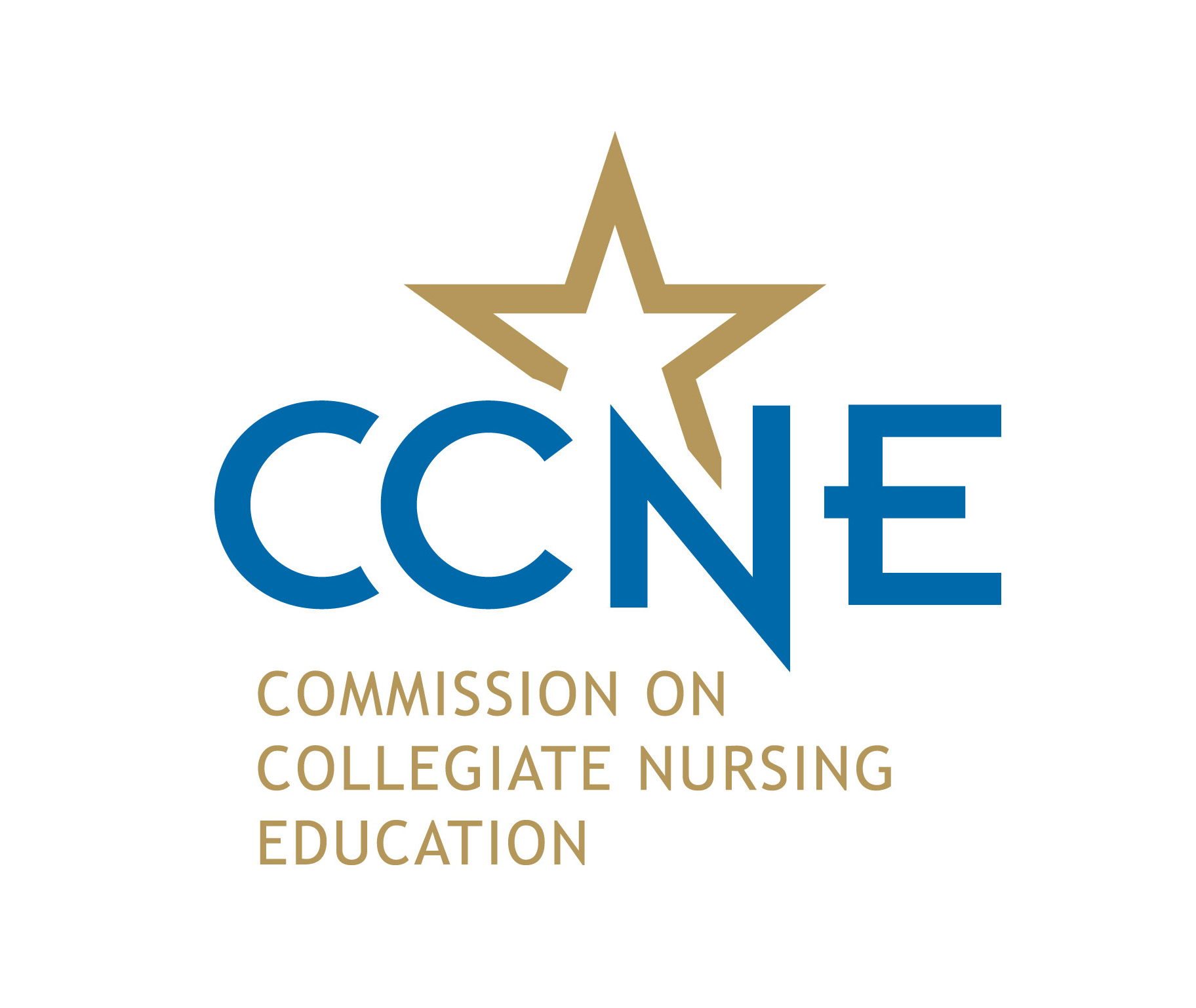Doctor of Philosophy in Nursing
For over 30 years, more than 100 nurse scientists have graduated from our Doctor of Philosophy (PhD) in Nursing program and have gone on to careers in nursing education, research and organizational leadership in the United States and abroad.
The goal of our PhD in Nursing program - the first completely online PhD program in
the country - is to engage you in an intensive, rigorous manner that prepares you
to be a nurse scholar. Applied research courses in qualitative, quantitative and mixed
methodologies will prepare you to function as an independent researcher upon graduation.
Period of Candidacy for the Doctor of Philosophy
A student is required to satisfy the Doctor of Philosophy in Nursing (PhD) degree requirements within eight (8) calendar years from the semester in which the student completes the first course for the degree. A student is required to complete all PhD Program course work, including core courses, electives, cognates, and practica, within five (5) calendar years from the semester in which the student completes the first course for the degree. Under unusual circumstances, the student may apply for an extension of the statute of limitations. Extensions of up to one (1) year (maximum total program – 9 years) may be granted under special circumstances. Students should consult the Nursing Graduate Student Handbook for additional information.
Students may not be enrolled in more than one doctoral program at any given time.
Program Information
The online PhD in Nursing program prepares you to become an independent researcher and nurse scholar through doctoral courses in qualitative, quantitative and mixed methodologies. An online Doctor of Nursing Practice to PhD option is also available.
Program Type
Major
Degree
Doctorate
School
Duration
3 or 4 years
Required Credit Hours
56
Modality
Online
Student and Alumni Perspectives
More about the PhD in Nursing
PhD Overview
Various Program Options
The program begins in May with the start of the summer semester. We offer three-year and four-year curriculum options, as well as a DNP to PhD program, which permits nurses with a DNP degree to gain valuable skills that will enable them to function as independent researchers.
All options are offered online with residency requirements at our Pittsburgh, PA, campus as well as at Trinity College in Dublin, Ireland as part of one study abroad experience.
Three-Year and Four-Year Curriculum Options
The School of Nursing offers both a three-year and a four-year option for pursuing a PhD in Nursing. This allows you to apply to the program track that fits best with your goals and lifestyle. Although the tracks maintain the same coursework, they differ in their required level of commitment.
The three-year track requires the completion of six to ten credits each semester, making it ideal for students who can dedicate their focus primarily to their studies. On the other hand, the four-year track demands six credits per semester, providing a more relaxed pace suitable for students who may need to balance their academic pursuits with other life or work commitments.
DNP to PhD Program
Apply the knowledge and skills you learned in your DNP program to this DNP to PhD option which allows you to conduct research related to your DNP Project. The DNP to PhD program requires completion of 38 credits, which typically takes two-and-a-half years, including dissertation.
Program coursework schedule by year
The program can be completed in either three or four years. Both options total of 56 credits, and the coursework remains the same. View the two curriculum schedules for both three- and four-year options.
Residency requirements
Residency One: Doctoral Week
Every student admitted to the PhD program is required to come to the Pittsburgh, PA, campus for the first residency, usually held during the second or third week of May. This week includes an orientation to the PhD program and provides an opportunity for students to meet faculty and participate in live classes for the courses in which they are enrolled that summer.
Residency Two: Study Abroad
Students enrolled in GPNG 924 Methods of Scientific Inquiry II will take part of the course as a study abroad experience (approximately 10-14 days) in Dublin, Ireland, where students will have housing at Trinity College.
*Please note that any tuition discounts that graduate students receive are not applicable to study abroad courses.
Residency Three: Topic and Committee Approval
This residency provides an opportunity for students to meet with their faculty mentor on campus for discussion and writing around dissertation topic development in preparation for approval.
Defenses
Each student must write and defend a dissertation on a topic of their choosing. As part of the PhD curriculum, you will be required to make both a proposal defense and a final defense.
Proposal Defense
The Proposal Defense is an oral defense of a written dissertation research proposal.
Final Defense
The Final Defense is an oral defense of the completed dissertation. Students make one public oral defense. The University sets a deadline date for the final defense. Prior to this deadline, students must have already:
- Successfully defended their dissertation.
- Made any corrections requested by their dissertation committee.
- Submitted an approved electronic (ETD) version of their dissertation.
Students need to work with their committee chairs to schedule their final defense dates at least four to six weeks prior to the University deadline.
As a welcome to newly enrolled PhD students, the School of Nursing supports students'
future scholarship by providing a one-time $2000 award to be used for professional
development activities. The PhD faculty includes several fellows and department chairs. All faculty have areas
of research expertise, and we invite you to connect.PhD Student Professional Development Fund
Meet the PhD Faculty
Revisions to courses and curricula are ongoing. The purpose of the PhD in Nursing program is to prepare graduates for a lifetime of
intellectual inquiry, creative scholarship and research. Graduates of the program
will be competent in research, scholarship and leadership within the profession of
nursing. The graduate must possess and demonstrate the following competencies: Spring - Scientific Tools Summer - Global View Spring - Immersion and Articulation Summer - Foundations Spring - Developing Independence Summer - Dissertation and Dissemination Spring - Scientific Tools Summer - Global View Spring - Immersion and Articulation Summer - Foundations Spring - Developing Independence Summer - Dissertation and Dissemination Spring - Dissertation and Dissemination Summer - Dissertation and Dissemination Frequently asked questions for the PhD in Nursing programCurriculum
Summer - Foundations
Year Two
Fall - Science, Truth and Knowledge
Year Three
Fall - Immersion and Articulation
Year Four
Fall - Immersion and Articulation
51 credits Total
*Required on -campus
**Required Study Abroad
Summer - Foundations
Year Two
Fall - Science, Truth and Knowledge
Year Three
Fall - Immersion and Articulation
Year Four
Fall - Immersion and Articulation
Year Five
Fall - Dissertation and Dissemination
51 credits Total
*Required on -campus
**Required Study AbroadFrequently Asked Questions
*Please note the course must have been completed within the last 5 years.
If our GREV 510 does not meet your timeline, courses will be accepted from any accredited
university with prior approval from the PhD chair. To assist applicants, our PhD faculty
have identified online courses through Portage Learning and the University of Phoenix that meet the prerequisite requirements.
If you identify another course that you would like to attend in person or online,
please submit the course information for approval prior to enrollment.
If you have any questions, please contact Director of Admissions Brian Bost at (412)
396-6539 or via email.
Additional Resources
Learning Outcomes
- Function as a nurse scientist by conducting original research that builds upon existing evidence and expands the body of knowledge in nursing and health.
- Utilize theoretical frameworks and research findings to guide inquiry that enhances health and health care delivery for all.
- Produce and disseminate scholarly work that contributes to the science and profession of nursing by communicating creative solutions to problems in nursing and health care.
- Lead collaborative research teams to reduce health care disparities on local, national,and global levels.
- Demonstrate high ethical standards in all research activities.
- Advocate for health care policies that are based on evidence and the principles of social justice.
Accreditation
The PhD in Nursing program at Duquesne University School of Nursing is accredited by the Commission on Collegiate Nursing Education (CCNE).
Contact Us
Do you have questions about the PhD in Nursing program?
Brian Bost






















